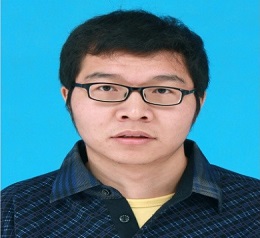Scholars International Webinar on
Catalysis, Chemical Engineering & Technology
THEME: "Contemporary Advances and Innovations in Catalysis and Chemical Engineering Research"
 25-26 Nov 2021
25-26 Nov 2021  Online | Virtual
Online | Virtual THEME: "Contemporary Advances and Innovations in Catalysis and Chemical Engineering Research"
 25-26 Nov 2021
25-26 Nov 2021  Online | Virtual
Online | Virtual 
WuXi AppTec, China
Title: Kinetic selection in the out-of-equilibrium autocatalytic reaction networks that produce macrocyclic peptides
Miao is now an associate principal scientist in WuXi
Apptec, who did his postdoc in Weizmann Institute of Science in the field of
autocatalysis and origin of life. He endeavored to
design and construct the first chemical system where polymerization
of peptide monomers results in predominantly macrocyclic oligomers. Further, Dr. Miao
tried to understand how the combination
of autocatalysis, diversity of products, and out-of-equilibrium conditions
(open system) results in the selection of more functional using his knowledge
in mathematic modeling of the reaction kinetics and flow chemistry. Dr. Miao
obtained his Ph.D. in University of Groningen, working on selective fictionalization
of the surface of nanoparticles and dendrimers using dynamic combinatorial
chemistry.
Autocatalysis is considered central to the problem of the origin of life on Earth because it is a key ingredient of Darwinian evolution. However, not every type of autocatalysis can drive evolution. It requires competition between selectively self-amplified, information-carrying replicators. Molecular replicators (e.g., trinucleotides) often have complex structures that it is difficult to imagine their formation in considerable amounts in prebiotic environments. It is well understood how the selection of specific molecules occurs in reaction networks driven by template-assisted ligation; however how selection could occur in strongly interconnected, nonselective, autocatalytic networks is less clear. Here, we demonstrate that dimeric thioesters of tripeptides with the general structure (Cys-Xxx-Gly-SR)2 form strongly interconnected autocatalytic reaction networks that predominantly generate macrocyclic peptides up to 69 amino acids long. Some macrocycles of 6-12 amino acids were isolated from the product pool and were characterized by NMR spectroscopy and single-crystal X-ray analysis. We studied the autocatalytic formation of macrocycles in a flow reactor in the presence of acrylamide, whose conjugate addition to thiols served as a model “removal” reaction. These results indicate that autocatalytic production and competing removal of molecular species in an open compartment could be a feasible route for selecting functional molecules during the pre-Darwinian stages of molecular evolution.